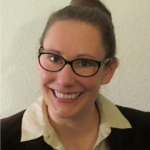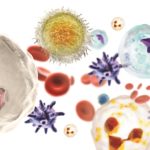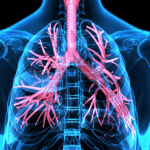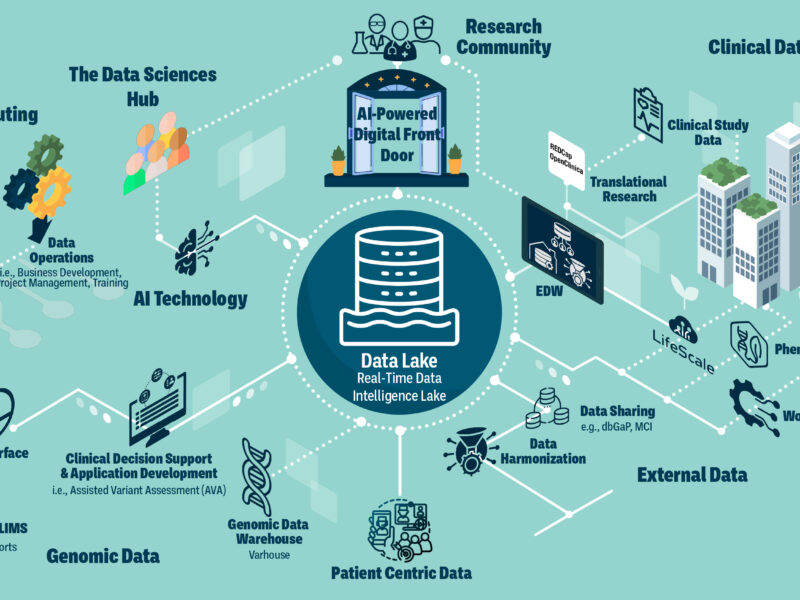An Epigenetic Vulnerability for Rhabdomyosarcoma Among Children?
An Epigenetic Vulnerability for Rhabdomyosarcoma Among Children? https://pediatricsnationwide.org/wp-content/themes/corpus/images/empty/thumbnail.jpg 150 150 Jessica Nye, PhD Jessica Nye, PhD https://secure.gravatar.com/avatar/?s=96&d=mm&r=g- January 03, 2022
- Jessica Nye, PhD
A deep classification of epigenetic machinery in rhabdomyosarcoma (RMS) tumors finds that the mammalian SWItch/Sucrose Non-Fermentable (mSWI/SNF) complexes are essential for the stabilization of RMS.
A recent study, published in Nature Communications, by Ben Stanton, PhD, and colleagues focused on rhabdomyosarcoma (RMS), a lethal pediatric soft tissue malignancy. Fusion positive RMS (FP-RMS) has properties of skeletal muscle cells and is commonly driven from translocation events between the PAX3 gene on chromosome 2 with the FOXO1 gene on chromosome 13. The PAX3-FOXO1 fusion oncoprotein alters the epigenetic state in FP-RMS and may contribute to gene expression patterns that prevent terminal muscle differentiation.
To date this aggressive cancer remains associated with poor prognosis, in part due to the lack of detailed understanding of the epigenetic drivers of the disease.
Pediatric cancers often differ fundamentally from that of adults. Tumors found in adults tend to carry a much higher mutational burden while many cancers in children and adolescents can have signatures of genetic rearrangements or altered chromosome structure, implicating epigenetics in their etiology.
“Epigenetics does not have deterministic rules written in stone” says Dr. Stanton, a principal investigator in the Center for Childhood Cancer & Blood Diseases at the Abigail Wexner Research Institute at Nationwide Children’s Hospital, and assistant professor at The Ohio State University College of Medicine. “The complexity is part of what makes chromatin so exciting.”
In order to bridge the gap in knowledge between disease progression and epigenetics, their study assessed the FP-RMS-specific roles of mSWI/SNF complexes in tumor-derived cell lines using genetic (CRISPR/Cas9) screens, time course experiments, chromatin sequencing, proteomics and immunofluorescence approaches.
They found that SWI/SNF complexes were essential for the stabilization of the FP-RMS cell state with the complexes preventing tumor differentiation. Malignant cells were observed to have spatial proximity between the mSWI/SNF complexes and the PAX3-FOXO1 fusion oncoprotein.
Chromatin remodeling complexes are a tightly bound assembly of proteins which travel together across the genome, regulating chromatin concordantly. The patterns of these complexes and the genes involved could be markers for the differentiation state in malignancy.
Compared with skeletal muscle cells, FP-RMS cells overexpress the SWI/SNF related SMARCA4 gene which encodes the transcriptional activator Brahma-related gene-1 (BRG1). This study revealed that inhibiting BRG1 function was able to overcome the FP-RMS differentiation blockade.
“In our study, we found there is a key class of genes which encode subunits for the SWI/SNF remodelers. This class of genes is a vulnerability for the tumor,” says Dr. Stanton. Tracking the assemblies and regulatory patterns of these complexes can reveal the differentiation state, or potential tumorigenicity, of cells, and they might be a conceivable therapeutic target.
Dr. Stanton concludes, “our work was a team effort, involving collaboration across several labs, with a common goal. The study is a deep characterization of chromatin remodeling complexes in RMS. But there’s much left to do. I think the exciting thing is that the more we understand, the more mysteries there are. I view this as a victory for basic science. But there’s a long bridge to cross between fundamental understanding of RMS and targeting an actionable vulnerability.”
Reference:
Laubscher D, Gryder BE, Sunkel BD, et al. BAF complexes drive proliferation and block myogenic differentiation in fusion-positive rhabdomyosarcoma. Nature Communications. 2021;12(1):6924.
About the author
Jessica Nye, PhD, is a freelance science and medical writer based in Barcelona, Spain. She completed her BS in biology and chemistry and MS in evolutionary biology at Florida State University. Dr. Nye studied population genetics for her doctorate in biomedicine at University of Pompeu Fabra. She conducted her postdoctoral research on the inheritance of complex traits at the Autonomous University of Barcelona.
-
Jessica Nye, PhDhttps://pediatricsnationwide.org/author/jessica-nye-phd/
-
Jessica Nye, PhDhttps://pediatricsnationwide.org/author/jessica-nye-phd/
-
Jessica Nye, PhDhttps://pediatricsnationwide.org/author/jessica-nye-phd/
-
Jessica Nye, PhDhttps://pediatricsnationwide.org/author/jessica-nye-phd/










